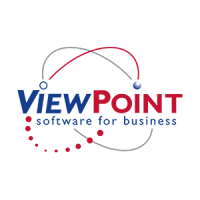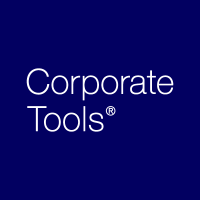What Is Entity Management Software?
For companies of all sizes, entity management software is an essential tool for managing their legal entities and guaranteeing regulatory compliance. Organizations can save and retrieve crucial data about their entities, including ownership, corporate structure, legal papers, and regulatory deadlines, using this single platform.
The time-consuming and frequently complicated operations of managing entities, such as creating and updating records, producing documents, and setting up meetings and resolutions, are streamlined by this software. It is an effective option for teams in charge of entity governance because it also provides features like task management, document storage and retrieval, and collaboration tools.
One of the main advantages of entity management software is that it assists companies in adhering to ever-changing rules and specifications. This program guarantees that companies are constantly current and in good standing with features like customisable compliance reports and automated alerts for significant deadlines. Furthermore, entity management software provides strong security features to safeguard private information and preserve the privacy of court records.
Because of this, it is a dependable and trustworthy option for securely managing businesses. Businesses can save a lot of money and time by investing in entity management software, which streamlines procedures, eliminates human data entry, and lowers the possibility of errors. Because authorized stakeholders may readily access and share information, it can also increase overall productivity and transparency.
What Are The Recent Trends In Entity Management Software?
To stay up with the intricate and dynamic corporate environment, entity management software is always changing and adapting. The features and operation of these tools have been influenced by a number of noteworthy industry advancements in recent years.
1. Cloud-Based Solutions: The shift to cloud-based solutions is one of the largest developments in entity management software. Cloud-based systems provide a centralized and secure method of managing entity data, as opposed to installing the program on individual devices. Real-time updates, remote access, and simpler teamwork are all made possible by this.
2. Integration With Compliance Regulations: As compliance and regulatory requirements have received more attention, entity management software has begun to incorporate capabilities that assist companies in adhering to different rules and regulations. This includes functions like notifications for approaching deadlines, tracking of regulatory changes, and automated document preparation.
3. Automation And AI: The capabilities of entity management software have been significantly impacted by developments in automation and AI. These days, these systems can create reports, automatically extract and arrange data, and even spot possible compliance issues. This lowers the possibility of human error in addition to saving time.
4. Data Security And Privacy: For companies of all sizes, data security and privacy have emerged as major concerns. In order to safeguard sensitive data, entity management software suppliers are putting stronger security measures into place. This covers functions like data encryption, multi-factor authentication, and frequent security assessments.
5. Mobile Access: As more people utilize mobile devices, entity management software is getting easier to access on tablets and smartphones. This increases productivity and efficiency by enabling people to access and manage entity data while on the go.
6. Customizable Dashboards And Reporting: The capability to tailor dashboards and reports to specific business requirements is another development in entity management software. Better insights into business data and a more customized experience are made possible by this.
Benefits Of Using Entity Management Software
A specialized tool called entity management software, sometimes referred to as entity governance software, was created to assist companies in effectively managing their legal entities. These organizations may be partnerships, companies, LLCs, or other types of legal formations. Businesses of all sizes, from start-ups to multinational corporations, can gain a lot from investing in entity management software. To assist you in making an informed choice for your company, we will examine the main benefits of utilizing entity management software in our buyer's guide.
1. Better Management Of Compliance: For any organization, maintaining compliance with legal and regulatory obligations is essential. You may consolidate all of your entity data, papers, and crucial deadlines in one safe area by using entity management software. This guarantees that your entities are constantly in good standing by lowering the chance of missing crucial filings or deadlines.
2. Increased Productivity And Efficiency: It can take a lot of time and effort to manage legal entities, especially for international organizations that have many entities. This process is streamlined by entity management software, which automates repetitive processes like calendar reminders, data administration, and document creation. This increases overall productivity and efficiency by giving your staff more time to devote to more strategic projects.
3. Reporting And Visibility: Real Time With the help of real-time reporting and analytics capabilities, entity management software gives you a thorough understanding of your entities and their compliance status. This enables you to swiftly spot possible dangers or inconsistencies and make data-driven decisions. Furthermore, the software's unified database saves you time and lowers the possibility of human mistake by doing away with the need to manually compile data from various sources.
4. The Ability To Scale: The complexity of managing additional companies rises as your organization expands and you acquire new ones. Since entity management software is made to grow with your company, it's a wise long-term investment. The software's flexible features and easy-to-use interface allow it to adjust to your evolving demands and assist you in meeting your entity management obligations.
5. Safe Data Administration: Sensitive information is held by legal bodies, and its security is vital. Advanced security features like encryption, password protection, and user access controls are available through entity management software. This protects your business from any data breaches and compliance violations by guaranteeing that only authorized workers can access your entity data and documents.
Important Factors To Consider While Purchasing Entity Management Software?
To ensure that you are getting the finest product for your particular needs, there are a number of crucial elements to take into account when buying entity management software. When you're making your choice, have the following points in mind:
1. Ease Of Use: The software's ease of use is the most crucial consideration. All users, regardless of technical proficiency, should be able to access and utilize the software with ease because to its user-friendly design and straightforward navigation.
2. Features And Functionality: Make sure the software meets your business needs by assessing its features and functionality. Look for features like reporting capabilities, entity information storage, compliance tracking, and document management.
3. Integration Capabilities: A lot of companies already have systems and software in place. To prevent incompatibilities, choose entity management software that can easily interface with your existing software and systems.
4. Customization Options: Your entity management software should be able to adapt to the specific needs of each firm. Seek program with customization features so you can modify it to meet your own requirements.
5. Security: It is essential to make sure that entity management software has strong security measures in place because it handles important corporate data. To protect your data, look for features like user permissions, data encryption, and frequent backups.
6. Customer Support And Training: To assist you become familiar with the software, look for a software vendor that provides first-rate customer support and training. If you and your team are unfamiliar with entity management software, this is particularly crucial.
7. Pricing: Examine the various software suppliers' pricing structures in detail before making a purchase. Choose the plan that best suits your demands and budget by weighing the features and functionality provided by each.
8. Scalability: Your entity management software should be scalable in case your company expands in the future. Select software that can grow with you and adapt to your changing requirements.
What Are The Key Features To Look For In Entity Management Software?
The essential characteristics that will satisfy your company's requirements should be taken into account when looking for the best entity management software. When assessing possible solutions, keep the following crucial characteristics in mind:
1. Respository Management: Important legal and corporate documents, including articles of incorporation, bylaws, and shareholder agreements, should be arranged and stored in a centralized, secure repository provided by a good entity management program.
2. Document Management: Seek out software that makes it possible to create, store, and track documents effectively. Features like version control, digital signature capabilities, and editable templates ought to be part of this.
3. Entity Roster Management: It can be difficult to keep track of entities and their subordinates. Seek out software that gives you a thorough overview of your whole corporate organization through an intuitive entity roster.
4. Compliance Monitoring: Staying out of trouble with the law and avoiding fines depends on compliance. To keep your business in compliance, the best entity management software should provide tools for keeping track of crucial dates, due dates, and filings.
5. Collaboration Capabilities: The entity management procedures of many companies involve a number of stakeholders. To increase productivity and teamwork, look for software that has collaboration features like task delegation and document sharing.
6. Reporting And Analytics: Making well-informed decisions requires having access to real-time data and analytics. To track important entity information and gain a better understanding of your company's structure, look for software that provides customisable reporting features.
7. Integration Options: Your company's other tools and systems should be able to easily interact with your entity management software. In addition to removing the need for human data entry, this can increase data efficiency and accuracy.
8. Security: For any organization, safeguarding confidential data is essential. Choose software with strong security features like audit trails, access limits, and data encryption.
9. Easy-To-Use Interface: The ideal entity management program should be simple to use and navigate. Choose an interface that is easy to use and requires little training.
10. Customer Support: Finally, it's critical to take into account the software provider's degree of customer support. To guarantee a seamless installation and continued use, look for software that provides prompt and beneficial support alternatives.
Why Do Businesses Need Entity Management Software?
For companies of all sizes, entity management software is a vital tool. It guarantees regulatory compliance and lowers the possibility of mistakes and fines by automating and streamlining the management of entities, including corporations, subsidiaries, and partnerships. Ensuring compliance with legal and regulatory obligations is one of the primary reasons firms want entity management software.
With the help of this software, businesses may maintain all of their crucial documents—including organizational and formation documents—up-to-date and in one convenient spot. In addition to guaranteeing legal compliance, this facilitates access to and dissemination of crucial information to pertinent parties. Entity management software helps companies save time and money in addition to ensuring compliance.
This program eliminates the need for staff to manually manage, organize, and maintain entity information, giving them more time to concentrate on other crucial duties. Additionally, it lowers the possibility of mistakes and delays in entity management, protecting companies from possible fines and penalties. Enhancing visibility and control over entities is another important advantage of entity management software.
Businesses can simply track and monitor all of its organizations with this software, which lowers the possibility of inaccurate or out-of-date information. This helps organizations make well-informed decisions by giving a thorough and accurate understanding of the organization's entities and structure. Additionally, entity management software makes it simple for companies to manage intricate ownership arrangements, mergers, acquisitions, and other business operations.
Businesses can more easily adjust to changes in their structure since it streamlines the process of adding or eliminating organizations. Last but not least, entity management software encourages cooperation and communication both inside and outside the company. A unified platform lowers the possibility of misunderstandings and delays by giving all pertinent stakeholders access to the most recent entity information.
How Much Time Is Required To Implement Entity Management Software?
Depending on your company's particular demands and requirements, the time it takes to implement entity management software can vary significantly. Generally speaking, the procedure may take a few weeks to many months. The complexity of your company, the number of entities you have, and the degree of software modification required can all have an effect on this.
Understanding the different phases involved is crucial when calculating the time needed for implementation. The first step is to collect and arrange all of your entity data, including ownership details, addresses, and firm names. This may take a while, particularly if your data is dispersed over several different platforms. After that, you and the software vendor will collaborate closely to customize the system to your unique needs.
Workflow setup, custom report creation, and system integration are a few examples of this. The entire implementation timeline will be impacted by the degree of customization needed. Training and testing are the last steps before the system goes online. This guarantees that all users are conversant with the program and that any problems or defects are found and fixed.
The intricacy of the program and the size of your company can also affect how long this step takes. It is crucial to remember that continuing upkeep and upgrades could be required to keep the software functioning properly even after the initial deployment. Selecting a trustworthy entity management software vendor that provides sufficient resources and assistance is therefore essential.
The time saved after the system is in place should be taken into account in addition to the software implementation time. Tasks like handling compliance paperwork, completing annual reports, and keeping correct ownership records may be expedited with effective entity management software, saving your team a significant amount of time and money.
What Is The Level Of Customization Available In Entity Management Software?
The degree of customization offered by entity management software might differ based on the particular program and its features. To meet the particular requirements of companies and organizations, the majority of entity management software does, however, provide a significant degree of flexibility. The capacity to create and administer various entity kinds, including corporations, LLCs, partnerships, and trusts, is a crucial component of customisation in entity management software.
This enables users to arrange their entities according to the structure of their firm. The capacity to adapt the software to particular businesses is another facet of customization. Certain entity management software, for instance, might provide templates and workflows created especially for sectors like finance, real estate, and healthcare.
This guarantees that the software can manage the particular needs and rules of these sectors. Furthermore, user responsibilities and permissions can frequently be customized using entity management software. This guarantees data security and privacy by allowing enterprises to manage who has access to particular data and software functionalities. Additionally, some entity management software provides reporting features and dashboards that can be customized.
This makes it possible for companies to monitor and evaluate data in a way that is pertinent to their particular requirements. All things considered, entity management software offers a great degree of customization so that companies can adapt it to their particular entity management requirements. Businesses can modify the software to meet their own needs and operations, from setting up companies to adjusting user permissions and industry-specific features.
Which Industries Can Benefit The Most From Entity Management Software?
A sort of technological solution called entity management software, sometimes referred to as corporate management software, is made to assist companies in efficiently managing their corporate structures and legal entities. Numerous entity-related chores, including managing ownership, filing yearly reports, and maintaining compliance, are streamlined and automated by this program. Entity management software has become a vital tool for businesses of all sizes and sectors due to the ever-increasing complexity of regulatory requirements and the demand for precise and transparent record-keeping.
1. Lawfulness And Adherence: Needless to say, the businesses that stand to gain the most from entity management software are those with intricate and demanding compliance requirements. These consist of banks, insurance companies, law firms, and other financial institutions. Numerous rules must be followed by these industries, and it can be difficult and time-consuming to manage several entities with various ownership arrangements. This procedure is made easier by entity management software, which offers a consolidated platform for tracking and monitoring compliance deadlines, producing precise data, and keeping an exhaustive audit trail. This assists these industries in avoiding fines, penalties, and harm to their reputations that could result from non-compliance.
2. International Businesses: Entity management software is revolutionary for multinational firms that operate across borders. Maintaining correct and current entity information is difficult for these organizations because they must cope with complicated legal and regulatory obligations in several jurisdictions. These businesses can effortlessly monitor and oversee their subsidiaries, branches, and business units around the world with entity management software. This guarantees adherence to regional laws and regulations, expedites the process of establishing and preserving legal organizations, and lowers the possibility of mistakes and inconsistencies.
3. New And Small Enterprises: Even though they are not subject to the same regulations as major organizations, startups and small enterprises can nevertheless gain a lot from entity management software. These companies frequently have to handle their ownership structures and legal entities as they expand, which can be difficult and time-consuming. They can automate repetitive operations like managing ownership changes, following compliance deadlines, and creating and maintaining corporate documents by using entity management software. This gives entrepreneurs and their staff more time to concentrate on other important facets of the company's expansion.
4. Nonprofit Establishments: Entity management software makes it simple to handle the particular compliance needs of non-profit organizations, including foundations, charities, and NGOs. The roles and obligations of board members, volunteers, and funders must all be accurately documented by these organizations. Additionally, in order to keep their tax-exempt status, they must abide by certain laws and regulations. Not-for-profit businesses can guarantee regulatory compliance, keep correct records, and expedite these procedures by utilizing entity management software.
Conclusion
As we wrap off this entity management software buyer's guide, it's critical to keep in mind that your performance and efficiency can be greatly impacted by the solution you select for your company. An outline of the main characteristics and elements to take into account while assessing various possibilities in this area has been provided. Before choosing, it's critical to carefully consider your requirements, financial constraints, and compatibility with current systems.
Ultimately, you may save time and money by streamlining your entity data administration, governance, and compliance procedures with the aid of the appropriate entity management software. Additionally, it will improve your entity data's visibility and control, lowering the possibility of mistakes and non-compliance. We hope that this guide has given you useful information and direction to help you make an informed choice.
To find out whether a piece of software fits your needs, do your homework and ask for evaluations or trials. You may enhance overall business performance and streamline your entity administration procedures with the correct entity management software. We appreciate your consideration of our guidance and wish you success as you look for the ideal answer.













